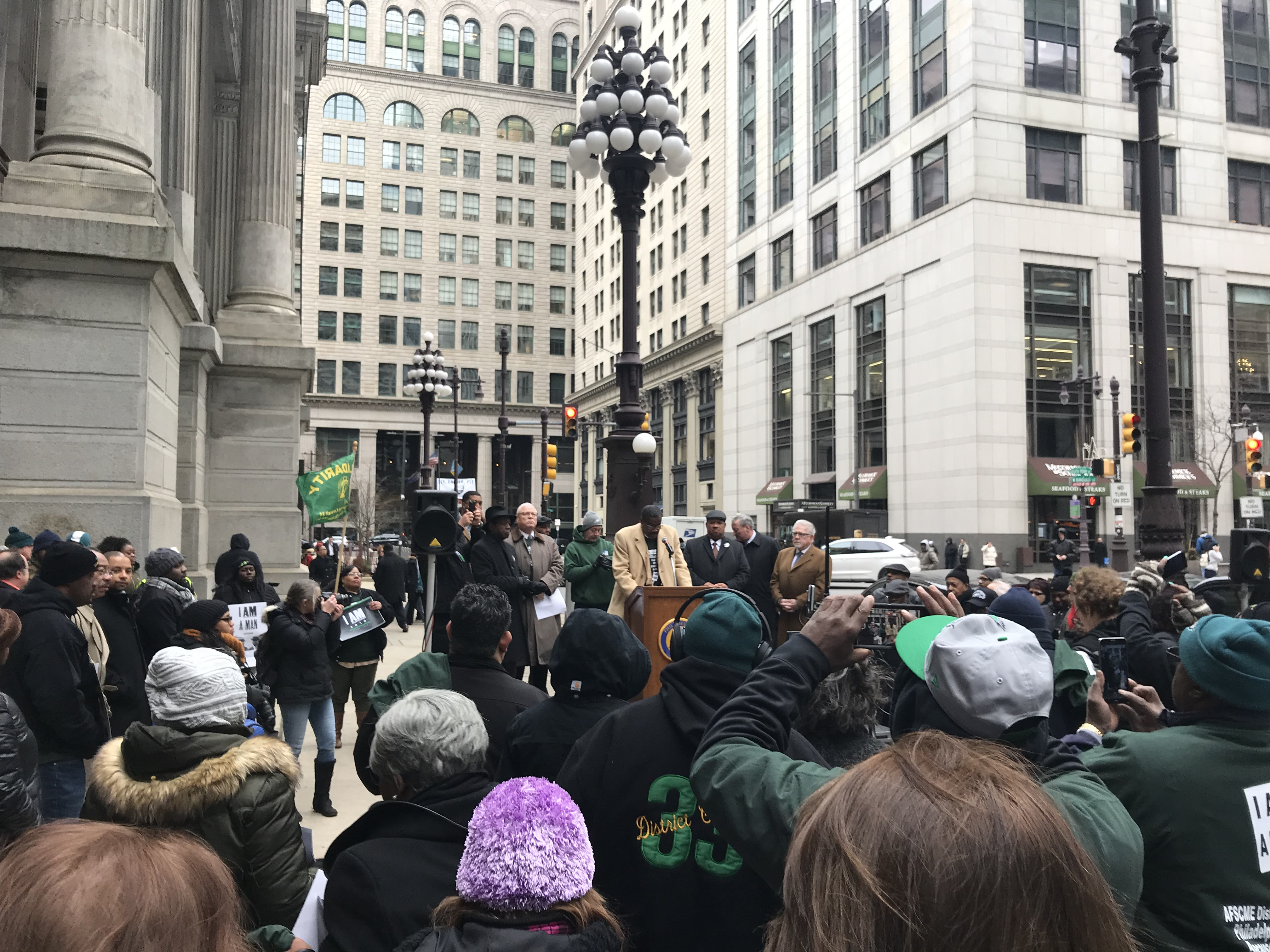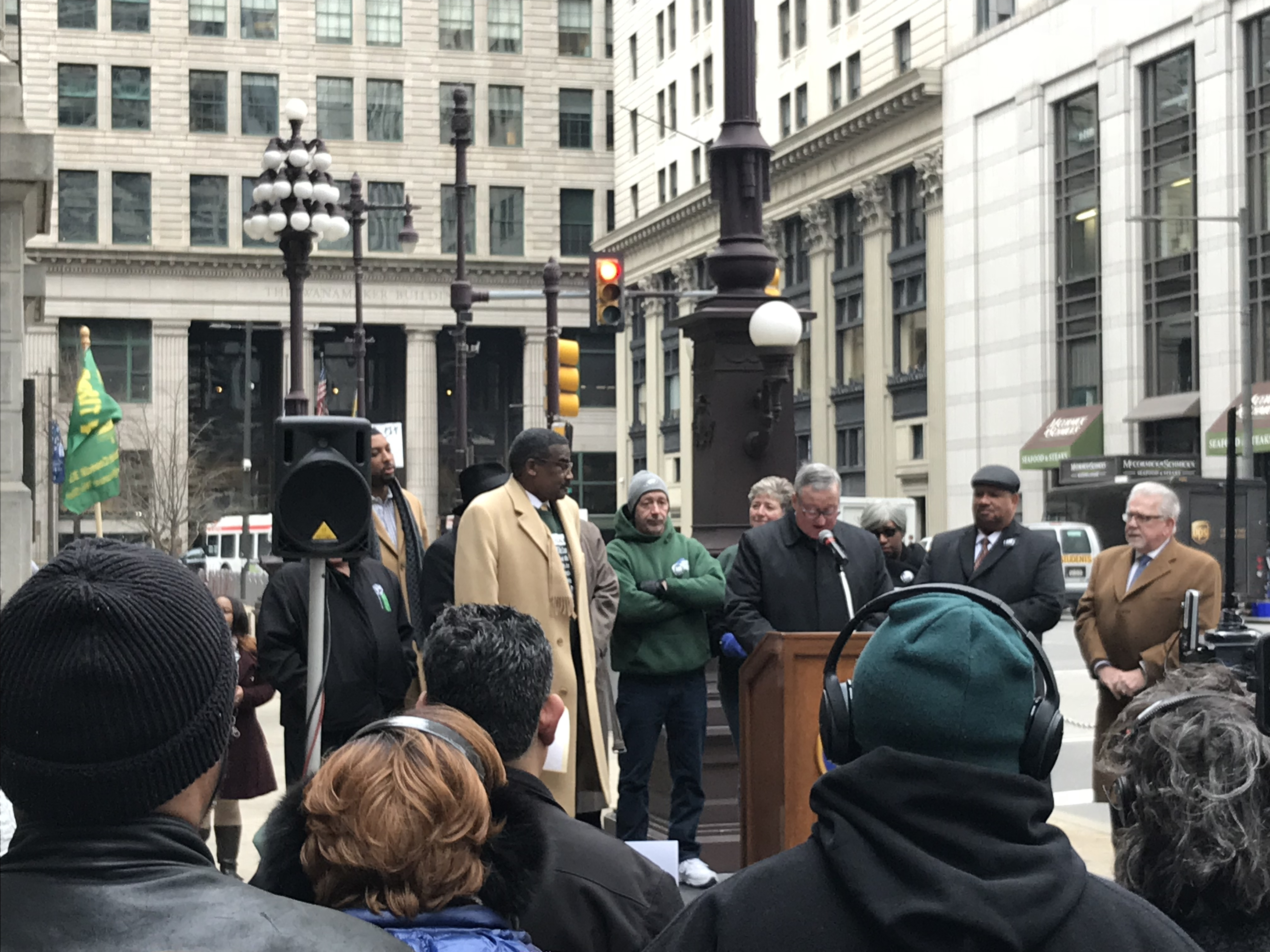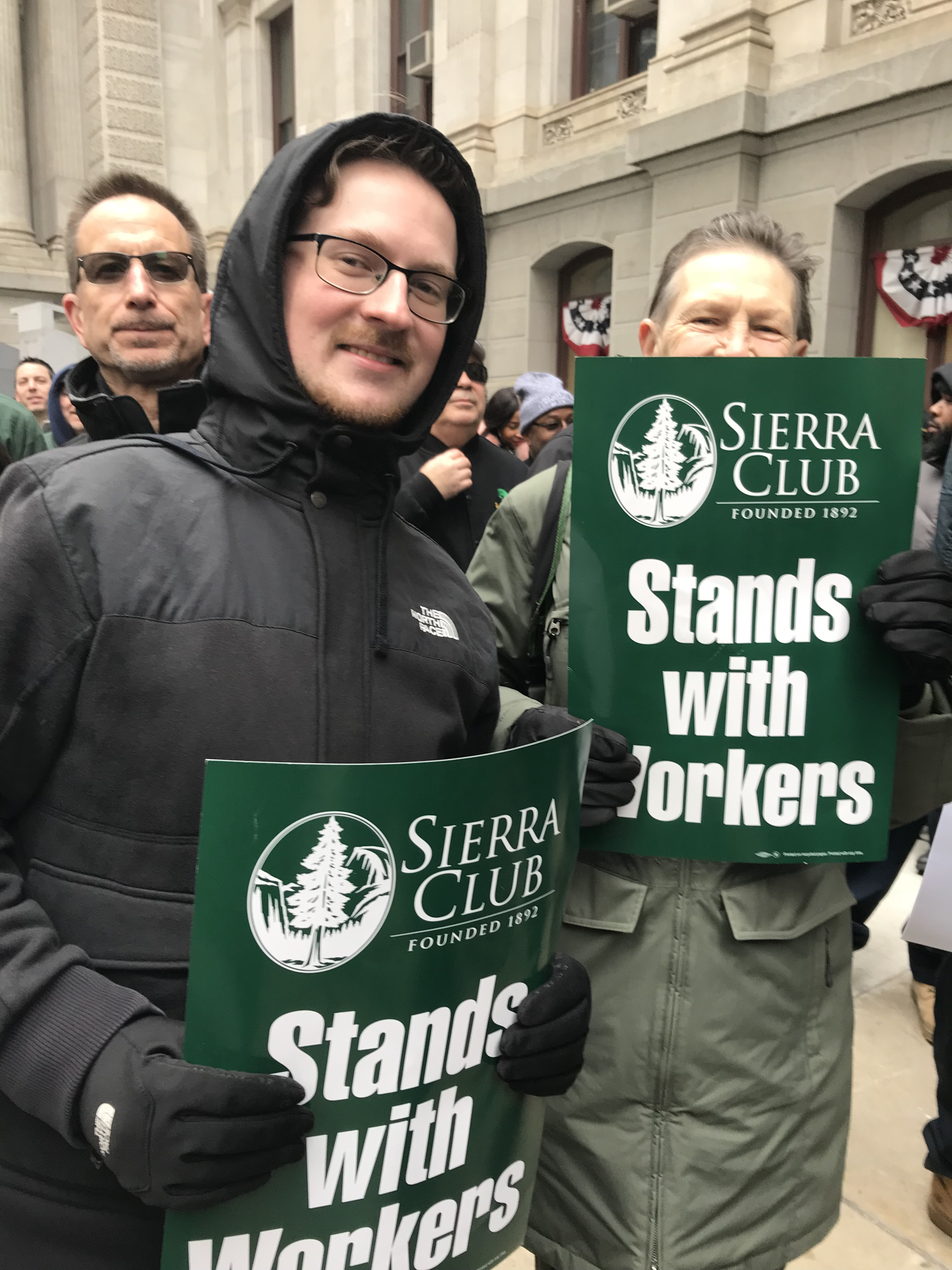Last week, I joined dozens of public service employees, union members, and allies gathered outside of Philadelphia City Hall at the memorial statue of Octavius Catto, civil rights activist and abolitionist, to pay tribute to Echol Cole, and Robert Walker, two sanitation workers whose tragic deaths sparked the historic Sanitation Workers Strike in Memphis, Tennessee.

A crowd gathers in front of City Hall as AFSCME DC 33 President Pete Matthews speaks.
Fifty years ago, on February 1st, 1968, Echol Cole and Robert Walker, two black sanitation workers on the job sought shelter from stormy weather by huddling in the back of their garbage truck when it suddenly malfunctioned and crushed them to death. Their deaths highlighted the unjust conditions and dynamics deeply embedded in the Memphis Department of Public Works: all Memphis garbage collectors were black, and were subjected to cheap wages and denied protective gear and safe working conditions.
The lack of response from management moved nearly 1,300 sanitation workers to strike on February 12, 1968, to demand recognition of their union with American Federation of State, County, and Municipal Employees (AFSCME). The work of T.O. James, a fellow sanitation worker who began organizing his workmates, and AFSCME president Jerry Wurf led to Martin Luther King Jr.’s efforts to join and support their struggle for racial and economic justice until his assassination on April 4, 1968.
The sanitation workers of Memphis and AFSCME reached a deal on April 16, 1968 to have their union recognized and fairer wages, but fifty years later we are still fighting for racial and economic justice for all workers.
Unions are still under attack--on February 26, the Supreme Court will hear oral arguments for the Janus vs AFSCME case to decide if the requirement for public sector employees to pay fair share dues for union-earned benefits is a violation of First Amendment rights. The fight that our ancestors, our unions, our communities and our allies have confronted is still a full-blown issue that we need to face head-on.

Philadelphia Mayor Kenney addresses the crowd during the I AM 2018 National Moment of Silence Ceremony.
As we gathered in front of City Hall on the 50th anniversary of Echol Cole and Robert Walker’s passing, we were reminded that we did not stand alone. Thousands of people across the United States participated in the National Moment of Silence and will continue highlighting the work done and left to do with the I AM 2018 initiative led by AFSCME. In Philadelphia, AFSCME President Lee Saunders, Reverend Jay Broadnax, Philadelphia Mayor Jim Kenney, City Council President Darrell Clarke, AFSCME DC 33 President Pete Matthews and Local 427 President Charles Carrington led the powerful ceremony, which can be viewed here.

Robin Mann, Sierra Club, and Alex Cupo, PennFuture, stand in solidarity with workers.
As we continue our work fighting for climate and environmental justice, we must remember that all of these issues are deeply connected. We cannot achieve an equitable vision for healthy, resilient communities without tackling pervasive structural oppression in all of our institutions, and without understanding that the fight for racial, economic, and environmental justice is a part of the greater struggle to institutionalize human rights in the center of society.
Zakia Elliott was born in Philadelphia and raised in a union family. With Philadelphia Climate Works, she helps move the City to combat climate change by justly investing in its workforce and its impacted communities. Read the Sierra Club's statement on Janus v. AFSCME here.